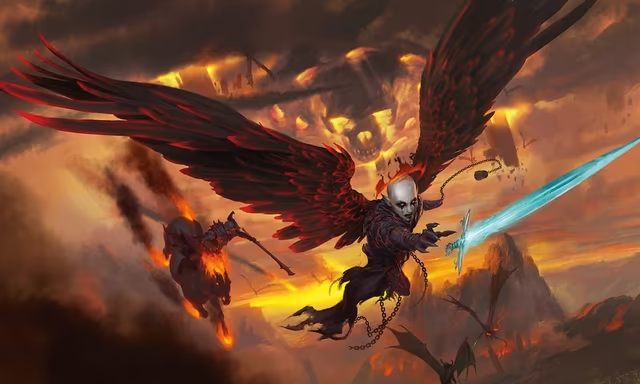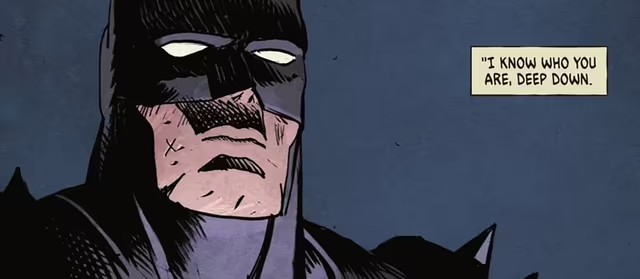If you click on a link and make a purchase we may receive a small commission. Read our editorial policy.
That time Li’l Abner creator Al Capp was in talks to do a cover for an underground comix anthology
Yes, we said Al Capp.

Popverse's top stories
- Where to find Popverse at Seattle's Emerald City Comic Con 2026
- Kickstarter's TTRPG record smashers The Legends of Avantris are back with 5E space opera Neon Odyssey
- Invincible season 4: release date, cast, trailer, episode schedule & season 5 update
It’s hard to name an institution that represents the golden age of underground comix more than Kitchen Sink Press, run by publisher Denis Kitchen. Over the years, Kitchen Sink Press has not only been responsible for publishing the best of the underground, but it has also become an advocate of classic comics that have fallen out of public attention, like Will Eisner’s The Spirit as well as Al Capp's Li'l Abner.
But years before Kitchen Sink published collections of Al Capp's work, the publisher launched an anthology titled Snarf, featuring work from Tim Boxell, Weldel Pugh, and Kitchen himself. Snarf was as underground as you can get, but Kitchen used the opportunity to poke at the complicated relationship between the world of underground comix and the comics of the mainstream.
This began when Denis Kitchen invited Will Eisner to draw a parody cover featuring his classic character The Spirit for the third issue of Snarf. It’s kind of amazing, and a strange, bizarre thing and has become a bit of a fun fact for fans of both mainstream and underground comics. But one thing that most people don't know is that there was a somewhat lengthy correspondence between Denis Kitchen and Al Capp about getting Capp to do a cover in the same vein.
From January 1973 to August 1976, Kitchen and Capp held correspondence about this attempted collaboration. This correspondence is now held in the Denis Kitchen collection at Columbia University's Rare Book and Manuscript Library. Kitchen’s letter of introduction to Capp reads "The books I publish are commonly known as 'underground comix,' for lack of a better term. They are read primarily by the college students and hippies that you have little use for. Thus it is with less than total confidence that I am approaching you to draw a cover for one of our books. I ask because I respect your craftsmanship and ingeniousness. And I suspect that a cover by you would shock our readership.”
At the time, Al Capp was one of the most famous men in the United States. Not only was he the artist behind the most popular comic strip – he was also treated as a celebrity. But that celebrity was about to be tinged by Capp’s long history of abuse. There’s a chance that this complex history, and the public airing of it, affected the fact that Capp never quite made it onto the cover of Snarf.
Kitchen, who would later go on to co-write a biography on Al Capp, told us about the situation:
“His reputation was starting to take hits not long before I reached out. A Jack Anderson syndicated column had revealed a pattern of inappropriate behavior with coeds during his college tours and, most recently, a a co-ed at the University of Wisconsin-Eau Claire accused Capp of sexually accosting her and he was indicted. My company, Kitchen Sink Press, was coincidentally in Wisconsin. I was publishing underground comix, and Capp, a longtime liberal darling, had done a 180-degree political turn to the right, even becoming a close friend of the soon-to-also-be-disgraced President Richard Nixon and VP Spiro Agnew. At the time of our conversation Capp was still not convicted of any crime—and his ultimate decline into disgrace could not have been known—but he was nonetheless possibly as wary of my inquiry as I was nervous.”

As for what happened after Kitchen reached out to Capp here's the story as Kitchen (who happens to be great at telling stories) tells it:
"As I developed the Snarf anthology I wanted to pay homage to an earlier generation of cartoonists: my plan was to alternate covers between underground cartoonists like myself, Robert Crumb, Art Spiegelman, and Jay Lynch, with the likes of Will Eisner, Harvey Kurtzman, and Will Elder, who all agreed. I decided to go after Capp, as kind of an “ultimate” target... After sending the letter to Capp, one of Capp’s assistants, Larry May, wrote a response and set up a phone call between Kitchen and Capp.
“I was pretty nervous at the prospect, because even though I was comfortable talking to other comics luminaries, Al Capp was in a class all by himself: he was not just famous for Li’l Abner, with a daily readership as high as 80 or 90 million; he was also a frequest guest on Johnny Carson’s Tonight and other talk shows, and he had a syndicated radio feature, and a newspaper column. He had made the covers of Time, Newsweek, and Life. The successful Li’l Abner Broadway play was made into a Paramount film. He was the only cartoonist besides Walt Disney to have his own theme park. He was huge in the popular culture.
In doing research for the conversation I reread a long interview he did in Playboy. One of the things that jumped out was a quote—paraphrasing—"I don’t trust altruists. I only respect people who like to make money.”
The scheduled call came. Right after the small talk, he said, “So how are you doing out there? Are you making any money?”
Remembering the interview snippet, I immediately lied to please him. “Yes sir, I’m making lots of money, Mr. Capp!”
“I like to hear that!” he roared with his distinctive deep laugh. We were off to a good start, I thought.
“So Larry tells me you want me to create a cover for one of your underground comic books, right? Now why would I want to do that?”
“Well, Mr, Capp, it is an underground, but some of your own mainstream colleagues are contributing. I mentioned Eisner, who he knew from encouraging a 1947 Abner parody in The Spirit, and Kurtzman, who had worked for the Capp Brothers’ Toby Press and who had often satirized Abner in Mad, Help!, and Trump. Those references didn’t seem to impress him.
Then I suggested, “We don’t censor our contributors, so you can use your cover as a platform to spit into the eyes of hippies.”
“Well, I like the sound of that,” he said. “How much does it pay?”
My usual cover rate was $200 but I doubled it to impress him. “Four hundred dollars,” I said, not realizing at the time that he pulled in well over a million dollars a year in strip royalties and got as much as $10,000 for a single college speaking gig.
He was not impressed. “I’ll get back to you,” he said abruptly, and our short discussion was over. Of course he never got back to me. The assignment must have seemed a little suspicious and the fee paltry by his standards.
Only later did I realize how I had misplayed the opportunity. I could never have offered Capp enough money to do a cover. But what I could have offered him was something he valued highly and coveted his entire career: publicity. I should have said, "Mr. Capp, you doing a cover for an underground comic, your spitting in hippies’ eyes, would be such an unlikely coupling that it will be great publicity for both of us! Imagine the press eating this up.”
I think that trick would have worked. But I didn’t think fast enough.”
Comics pioneer Denis Kitchen talks comics, history, and censorship at NYCC 2022
Follow Popverse for upcoming event coverage and news
Find out how we conduct our review by reading our review policy
Let Popverse be your tour guide through the wilderness of pop culture
Sign in and let us help you find your new favorite thing.
















Comments
Want to join the discussion? Please activate your account first.
Visit Reedpop ID if you need to resend the confirmation email.